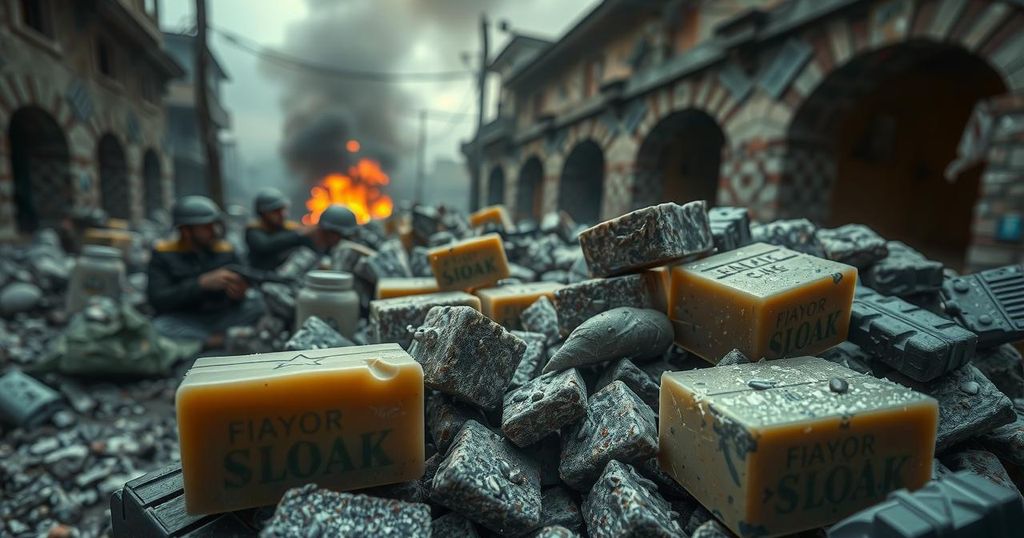UNESCO Designates Aleppo Soap as Intangible Cultural Heritage Amid Conflict

UNESCO has added Aleppo soap to its intangible cultural heritage list amidst ongoing conflict in the city. Artisans have continued the soap-making tradition for over 3,000 years, though the number of factories has dwindled due to war. The recognition of this craft emphasizes its cultural significance and the community bonds it fosters, even amid hardship.
The United Nations Educational, Scientific and Cultural Organization (UNESCO) has officially added Aleppo soap to its list of intangible cultural heritage. This announcement comes amid escalating violence in Aleppo, Syria’s second largest city, which has faced significant turmoil due to recent conflict involving Islamist-led factions. For approximately 3,000 years, artisans in Aleppo have utilized a traditional method to create soap from olive and laurel oils, a process that includes cutting and hand-stamping blocks after cooling in large pots.
Despite the impact of civil war, the craft continues to be vital for local families and communities, with remaining artisans valuing their cultural identity. Out of the original 100 soap factories, only about 10 are still operational, while others have moved to safer locations. UNESCO emphasizes that the soap-making tradition not only embodies unique craftsmanship but also fosters a strong sense of community among producers. It should be noted that Aleppo’s cultural heritage has already suffered considerable threats, leading to its designation as a world heritage site in 1986 and later, its endangered status in 2013, largely due to the ongoing Syrian conflict.
Aleppo soap represents centuries of artisanal craft in Syria, reflecting traditional methods that have been passed down through generations. The city’s rich history in soap-making has made the product a cultural emblem, even as the region has faced devastation from war. UNESCO’s recognition of Aleppo soap underscores the importance of preserving intangible heritage amidst conflict, as such traditions offer a glimpse into community life and cultural continuity in times of adversity.
The inclusion of Aleppo soap in UNESCO’s intangible cultural heritage list sheds light on the resilience of Syrian artisans despite the adverse effects of war. This designation not only honors the historical significance of the craft but also highlights the role of traditional practices in maintaining community cohesion. As Aleppo navigates the challenges of ongoing conflict, the preservation of its cultural artifacts remains a crucial endeavor for future generations.
Original Source: jordantimes.com








